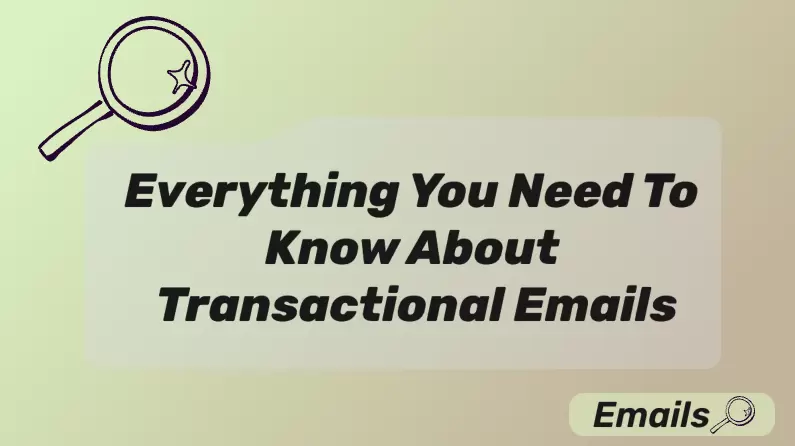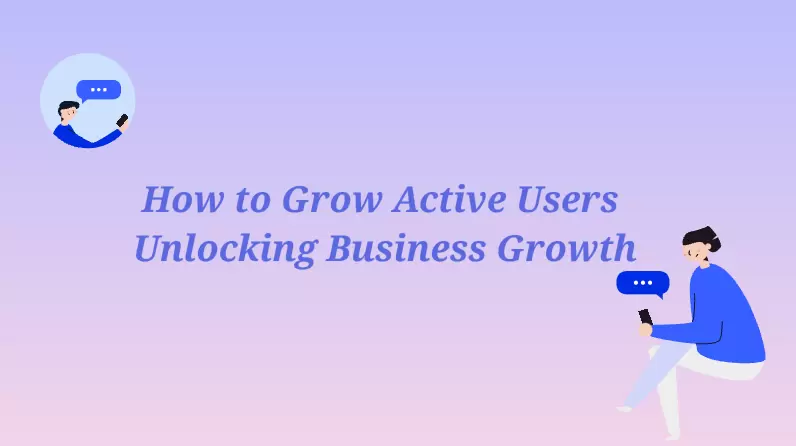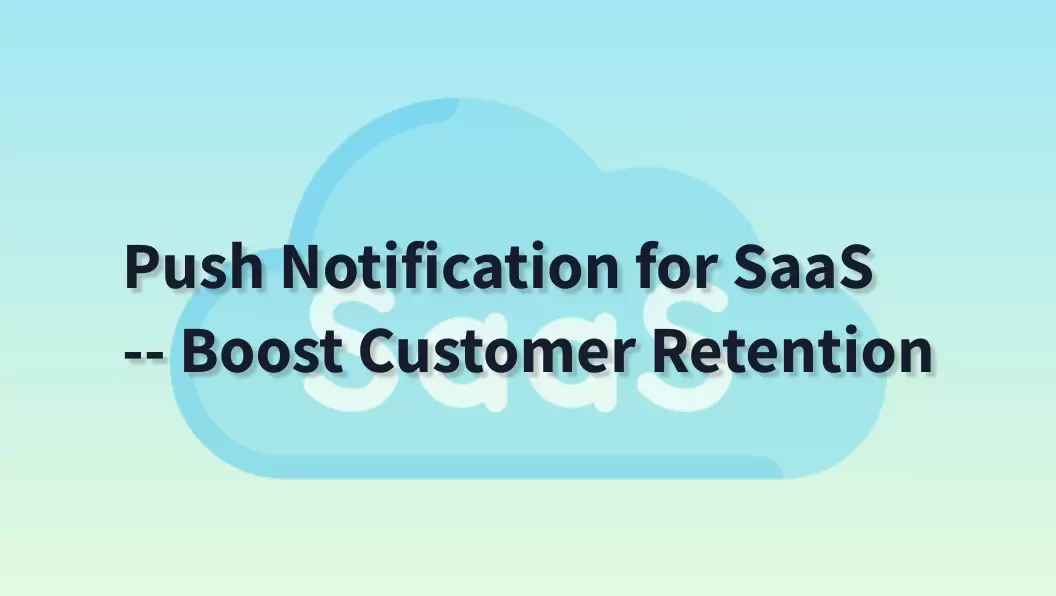Push notifications have become a powerful way for businesses to stay connected with their users in real time. Whether it's sending updates, promoting offers, or reminding users about unfinished actions, push messages can drive engagement, boost conversions, and keep your audience coming back. In this guide, we'll break down the different types of push notifications, show you how to use them effectively, and share tips to measure and optimize their performance—so you can build smarter, more impactful messaging campaigns..
Part 1. What is a Push Notification?
 Push notifications
Push notifications
also known as push messages or push alerts , are brief messages directly sent by an application or website to computers or mobile devices.
They can be tailored for various purposes, including sales promotions, transaction alerts, personalized content recommendations, and updates on new features. That makes push notifications a key tool for communicating with your users flexibly.
Part 2. How Do Push Notifications Work?
Push notifications use push technology , aka sever push , where communications start from a server (your side) rather than a client (the user side). In this method, your users can subscribe to specific content channels you provide and then receive updates on topics they're interested in. Whenever you create new content, it's automatically sent or "pushed" to those who subscribe.
As the communications are started from your side, your push notifications will appear on your users' devices in real time, no matter if they're currently using your app or website. Your users can receive the messages and respond promptly when needed. This ensures your communication is always within reach.
Part 3. Types of Push Notifications and When to Use Them
There are several types of push notifications, and each serves a different purpose:
1 Transactional Notifications

These are sent after a user takes an action, like placing an order, receiving
a delivery update, or resetting a password.
When to use:
To keep users informed about important account or order updates.
2 Promotional Notifications

These are used to share sales, discounts, or special offers.
When to use:
During holiday campaigns, product launches, or clearance sales to drive
traffic and conversions.
3 Reminder Notifications

These remind users about something they haven't completed—like a full cart or
an expiring subscription.
When to use:
To reduce drop-offs and encourage users to return.
4 Personalized Notifications

These are tailored to each user based on their activity, interests, or
location.
When to use: To
increase engagement with content or product suggestions that feel relevant.
5 System Notifications

These alert users to app updates, privacy changes, or service maintenance.
When to use:
To build trust and keep communication transparent.
Part 4. Key Benefits of Push Notifications for Your Business
Having seen the breadth of push notifications you can send, let's see how they benefit your business and users.
-
Instantly connect with your users
Push notifications enable you to immediately communicate with your users, enhancing the relevance and impact of your messages. Your users stay updated in real time and can quickly act when needed.
-
Keep your users interested and engaged
Push notifications motivate users to interact more with your app or website. They will feel valued by receiving messages that resonate with them, enhancing their retention rate.
-
Gain insights into user preferences to refine your strategies
Push notifications help you track user engagement and interaction and offer you crucial data to grasp users' behavior and preferences. You can then optimize future campaigns for improved performance and engagement, sending messages that truly resonate with your users.
-
Boost conversion rates
Timely notifications nudge users towards actions like making a purchase or returning to an abandoned cart. Passive users will then become active customers. Your convention rates will also get boosted.
-
Offer a high return on your investment
Push notifications are a cost-effective strategy. All you need to pay is a budget-friendly service tool. They ensure your every marketing effort count, offering a high return on your marketing investment.
Part 5. Engaging Content and Examples to Send via Push Notifications
Push notifications let you send content for different purposes and interact with your users directly. Here you'll learn engaging content that fits your business and catches your users' eyes.
| Engaging Content | Example | Purpose |
|---|---|---|
| Engagement messages |
|
|
| Time-bound notifications |
|
|
| Promotional messages |
|
|
| Transactional messages |
|
|
| Personalized recommendations |
|
|
| Social interaction updates |
|
|
| Feedback and surveys |
|
|
| Location-based messages |
|
|
EngageLab has prepared detailed content creation instructions for you, which can be reached in one click by clicking the link below!
Part 6. How to Send Push Notifications?
Let's move to the crucial part you're most interested in—how to send push notifications. Here's a guide for you to send push notifications effectively:

Step 1. Choose a push notification service
Choose a reliable service. Push notification services commonly include features for sending effective messages, such as segmentation, automation, and analytics.
Start For FreeStep 2. Obtain permission from your users
Send a request to ask for your users' acceptance for receiving push notifications. To boost the acceptance rate, you can do that after users start to see the value in your app or on your website.
Step 3. Categorize your users
Divide your users into groups based on their behaviors, preferences, location, or other relevant factors.
Step 4. Create engaging notifications
Send a request to ask for your users' acceptance for receiving push notifications. To boost the acceptance rate, you can do that after users start to see the value in your app or on your website.
Step 5. Schedule and send notifications to users
Send messages instantly or schedule them for a future time based on optimal times.
Step 6. Refine your strategies based on analytics
Access the statistics shown on the service tool. You can focus on open rates, click-through rates, and conversion rates. These insights will help you improve notification content and pinpoint the best time to send messages.
Part 7. How to Measure and Optimize Push Performance?
Tracking performance helps you improve your push strategy over time. Focus on these key metrics:
- Delivery Rate: The percentage of notifications that were successfully delivered to devices. A low rate may point to technical issues or users turning off notifications.
- Open Rate: How many users clicked or tapped on the notification. This shows how compelling your message is.
- Conversion Rate: How many users completed the desired action, like making a purchase or signing up. This measures the real impact.
- Opt-out Rate: The number of users who disabled push notifications. High opt-outs may mean you're sending too many or irrelevant messages.
- Engagement Over Time: Tracks whether users keep interacting with your messages over days or weeks.
-
Seamlessly integrate your app or website
It's straightforward to integrate your app or website with EngageLab: just a quick app or website configuration and SDK integration. The whole process will be completed within just three minutes.
-
Improve your user reach with high delivery rates
EngageLab push service offers stable and secure messaging through high-concurrency international channels and a multi-point backup system. It manages to extend user reach by supporting diverse platforms:
EngageLab AppPush is compatible with Firebase Cloud Messaging (FCM) and Apple Push Notifciation service (APNs) , channels from major brands like Huawei, Honor, Xiaomi, OPPO, and VIVO, and any messaging channels that're developed by yourself.
EngageLab WebPush adapts to all mainstream browsers, like Chrome, Firefox, Safari, Edge, and Opera.
-
Offer comprehensive statistics
EngageLab provides complete data analysis across your message lifecycle:
- message funnel analysis
- loss analysis for platforms and channels
- statistics on new users, active users, app uninstallations, notification acceptance, delivery rates, etc.
- other after-effect analysis
-
Reach out to the right audience at the perfect time
EngageLab push service helps you pinpoint the ideal audience based on user aliases, tags, devices, and location, ensuring your messages reach the right audience. It can also guide you to determine optimal times for sending notifications, helping you identify when your users are most likely to engage.


 Tips to Optimize:
Tips to Optimize:
- Run A/B tests to try different titles, messages, or send times.
- Adjust timing and frequency based on user behavior.
- Refresh your content regularly to keep it interesting.
- Segment your audience to send more targeted and relevant messages.
Part 8. Choosing the Right Push Notification Service for Your Needs
Knowing how to send push notifications is just the beginning. The most important step is selecting a service. If you're looking for one that is not only easy to use but includes features such as powerful segmentation and deep analytics, EngageLab is your top pick.
Explore below for the key features of EngageLab's push service, and you'll see why it's worth trying out.
Having explored its key features, it's time to unlock the unparalleled user engagement strategies of EngageLab yourself. Why not take the first step today with the FREE version? You'll see how it can transform your push notification strategy, at no cost .







